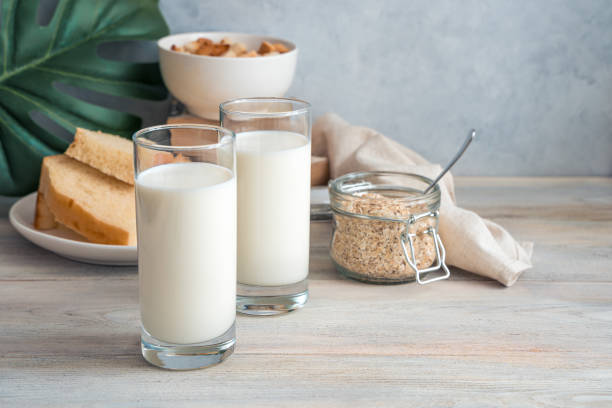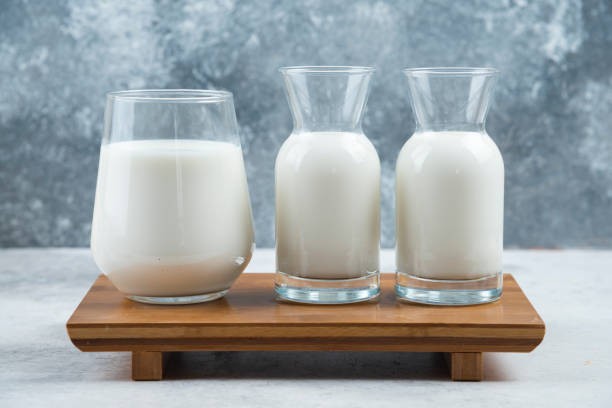Buttermilk, a byproduct of butter production, is a type of fermented milk that has a thick, creamy texture and a tangy, slightly sour taste. It is a popular ingredient in many dishes, including pancakes, biscuits, and marinades, and is also consumed as a refreshing drink. Buttermilk is traditionally made by adding lactic acid bacteria to low-fat or skim milk, which ferments the lactose and thickens the milk. However, today, most commercial buttermilk is made by adding lactic acid to non-fermented milk.
So, what is the nutritional value of buttermilk per 100g, and is it healthy for you? Here is a breakdown of the nutrients found in buttermilk, as well as their health benefits:
Protein: Buttermilk is a good source of protein, with about 3.4g per 100g serving. Protein is an essential nutrient that is necessary for the growth, repair, and maintenance of tissues in the body. It is also important for the production of enzymes, hormones, and other molecules that play a vital role in various body functions.
Carbohydrates: Buttermilk contains about 4.7g of carbohydrates per 100g serving. Carbohydrates are the body’s primary source of energy and are necessary for the proper functioning of the brain and nervous system. However, it is important to choose complex carbohydrates, such as those found in whole grains, legumes, and vegetables, over simple sugars, which can cause rapid spikes in blood sugar levels.
Fat: Buttermilk contains about 2.9g of fat per 100g serving. Fats are an essential nutrient that provides energy, helps absorb fat-soluble vitamins, and supports the growth and development of the brain and nervous system. However, it is important to choose healthy fats, such as those found in avocados, nuts, and olive oil, over unhealthy fats, such as those found in fried foods and processed snacks.
Vitamins and minerals: Buttermilk is a good source of several vitamins and minerals, including calcium, potassium, and vitamin D. Calcium is necessary for the formation and maintenance of healthy bones and teeth, while potassium helps regulate heart function and supports muscle and nerve function. Vitamin D is important for the absorption of calcium and the maintenance of healthy bones and teeth.
Probiotics: Buttermilk contains probiotics, which are beneficial bacteria that live in the gut and help maintain a healthy digestive system. Probiotics are thought to have a variety of health benefits, including improving gut health, boosting the immune system, and reducing the risk of certain diseases.
So, is buttermilk per 100g healthy for you? Overall, buttermilk can be a nutritious and healthy choice as part of a balanced diet. However, it is important to keep in mind that it does contain some fat and calories, so it should be consumed in moderation. Additionally, some commercial brands of buttermilk may contain added sugars and other additives, so it is important to read labels and choose brands that are made with natural ingredients.
In conclusion, buttermilk is a nutritious and healthy choice as part of a balanced diet. It is a good source of protein, carbohydrates, and various vitamins and minerals, and also contains probiotics that can benefit gut health. However, it is important to choose brands made with natural ingredients and to consume it in moderation.

 Home
Home Health
Health Diet & Nutrition
Diet & Nutrition Living Well
Living Well More
More












